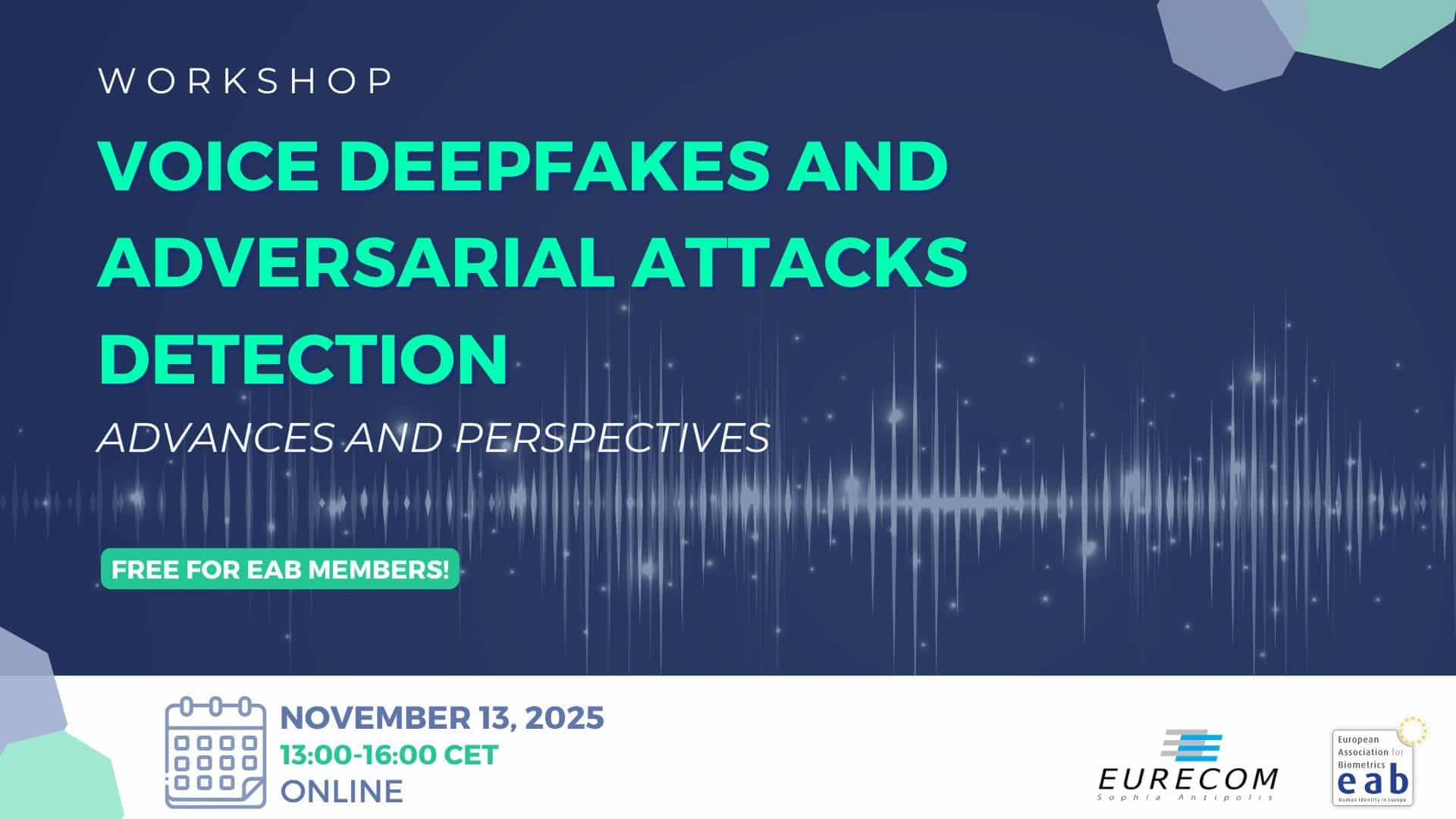Technology
Experts Address Voice Deepfakes and Attack Detection Techniques

The increasing prevalence of voice deepfakes and adversarial attacks poses a significant threat to the integrity of voice-based authentication and communication systems. These sophisticated technologies enable the creation of realistic synthetic speech, while adversarial attacks take advantage of weaknesses in machine learning models, allowing attackers to manipulate or bypass detection systems. As these threats grow, the security of biometric systems and the overall trust in artificial intelligence (AI) applications come under scrutiny.
On October 25, 2023, the European Association for Biometrics, in collaboration with EURECOM, will host a workshop dedicated to addressing these pressing challenges. The event will feature presentations from leading experts in the field, focusing on the latest advancements in detecting and mitigating voice deepfakes and adversarial attacks.
Exploring Technological Solutions
Attendees can expect in-depth discussions on various topics, including deep learning-based countermeasures and techniques to enhance adversarial robustness. Experts will share insights into how these technologies are evolving to combat increasingly sophisticated attack strategies. The workshop aims to equip participants with knowledge regarding generalization across unseen attacks, which is crucial for developing effective defense mechanisms.
Voice deepfakes have gained notoriety for their potential misuse, raising concerns over privacy and security. As these synthetic voices become more indistinguishable from real human speech, the ability to identify and verify authenticity is paramount. The workshop will delve into the methods currently employed to detect these deepfakes, as well as ongoing research aimed at improving detection algorithms.
Collaborative Efforts in Research and Development
The collaboration between the European Association for Biometrics and EURECOM underscores the importance of combining expertise from academia and industry to tackle these challenges. With the rapid advancement of AI technologies, the stakes are higher than ever. Institutions are tasked with not only developing effective detection systems but also ensuring that they can withstand evolving attack methods.
Participants will engage in discussions about the implications of these technologies for various sectors, including finance, healthcare, and security. As organizations increasingly adopt voice-based authentication systems, understanding the vulnerabilities associated with these technologies becomes essential for maintaining user trust.
The workshop represents a critical step towards fostering collaboration and innovation in the fight against voice deepfakes and adversarial attacks. By sharing knowledge and strategies, experts aim to enhance the security of biometric systems and ensure that AI applications continue to operate reliably in an increasingly complex digital landscape.
As the date approaches, interest in the workshop continues to grow, highlighting the urgent need for effective solutions to safeguard against the threats posed by voice deepfakes and adversarial attacks.
-

 Science3 months ago
Science3 months agoToyoake City Proposes Daily Two-Hour Smartphone Use Limit
-

 Health3 months ago
Health3 months agoB.C. Review Reveals Urgent Need for Rare-Disease Drug Reforms
-

 Top Stories3 months ago
Top Stories3 months agoPedestrian Fatally Injured in Esquimalt Collision on August 14
-

 Technology3 months ago
Technology3 months agoDark Adventure Game “Bye Sweet Carole” Set for October Release
-

 World3 months ago
World3 months agoJimmy Lai’s Defense Challenges Charges Under National Security Law
-

 Lifestyle3 months ago
Lifestyle3 months agoVictoria’s Pop-Up Shop Shines Light on B.C.’s Wolf Cull
-

 Technology3 months ago
Technology3 months agoKonami Revives Iconic Metal Gear Solid Delta Ahead of Release
-

 Technology3 months ago
Technology3 months agoApple Expands Self-Service Repair Program to Canada
-

 Technology3 months ago
Technology3 months agoSnapmaker U1 Color 3D Printer Redefines Speed and Sustainability
-

 Technology3 months ago
Technology3 months agoAION Folding Knife: Redefining EDC Design with Premium Materials
-

 Technology3 months ago
Technology3 months agoSolve Today’s Wordle Challenge: Hints and Answer for August 19
-

 Business3 months ago
Business3 months agoGordon Murray Automotive Unveils S1 LM and Le Mans GTR at Monterey









